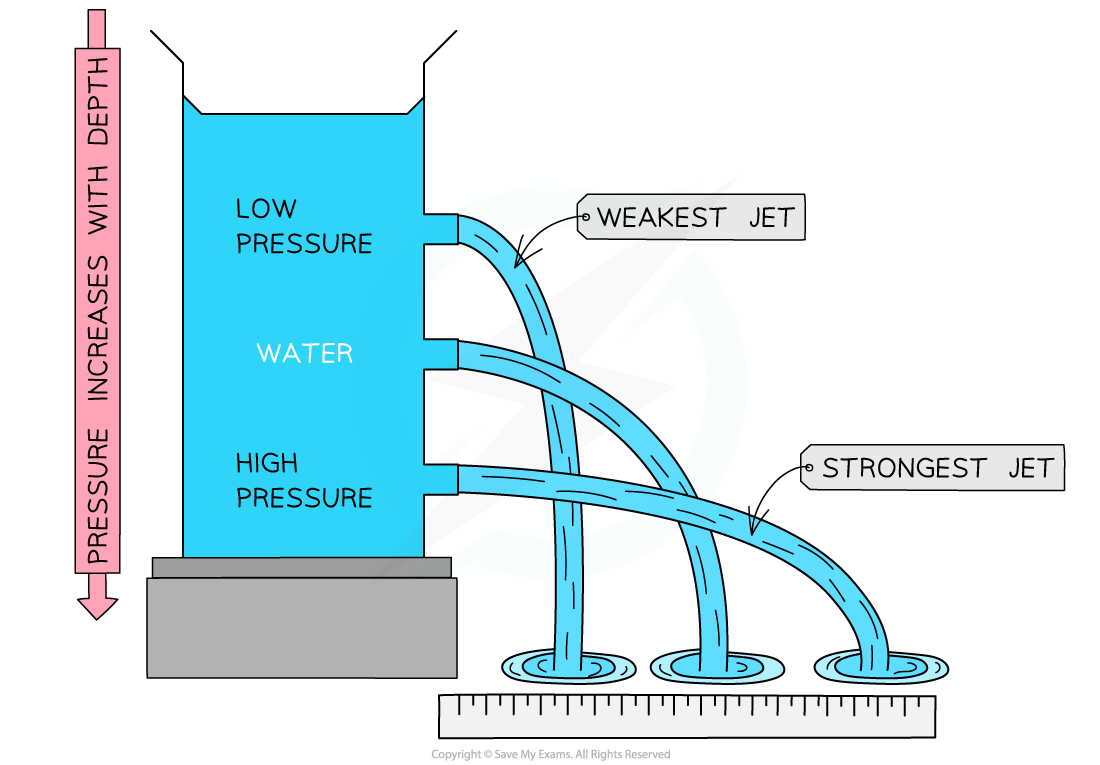Pressure in a Liquid (AQA GCSE Physics): Revision Note
Exam code: 8463
Factors Affecting Pressure in a Liquid
Higher Tier Only
In a liquid, the pressure at a point increases with the height of the column of liquid about that point
If there is more liquid above that point, then the pressure is more
This is because the pressure in a liquid is caused by the weight of the liquid pushing against objects immersed in the liquid
As the liquid becomes deeper, the amount of liquid (and hence the weight) increases which causes the pressure to increase
This is why, for example, the pressure increases with the depth of the ocean
The pressure on the seabed is far higher than that on the surface of the ocean
The weight of the liquid also depends on its density
A more dense liquid has a greater weight and therefore will exert a higher pressure

Pressure in a column of water increases with depth, shown by the strong and weak jet of water
In a column of water, the highest pressure would be at the bottom
If a hole is made at the bottom of the column, the water will pour out with a large force
If a hole was made at the top of the column, the water will pour out with a small force
This is because of the difference in pressure in the column caused by the weight of the water
Did this video help you?
Calculating Pressure in a Liquid
Higher Tier Only
The pressure due to a column of liquid can be calculated using the equation
p = h × ρ × g
Where:
p = pressure in pascals (Pa)
h = height of the column in metres (m)
ρ = density of the liquid in kilograms per metre cubed (kg/m3)
g = gravitational field strength on Earth in newtons per kilogram (N/kg)
The force from the pressure is exerted evenly across the whole surface of an object in a liquid, and in all directions

The force from the pressure of objects in a liquid is exerted evenly across its whole surface
The pressure is more accurately the difference in pressure at different depths h in a liquid, since the pressure changes with the depth
Worked Example
Calculate the depth of water in a swimming pool where a pressure of 20 kPa is exerted. The density of water is 1000 kg/m3 and the gravitational field strength on Earth is 9.8 N/kg.
Answer:

Examiner Tips and Tricks
This pressure equation will be given on your formula sheet, however, make sure you are comfortable with rearranging it for the variable required in the question!

Unlock more, it's free!
Did this page help you?